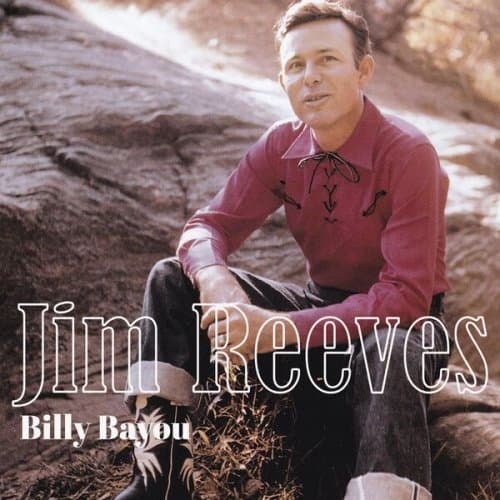
🎶 The Charming Caution: A Humorous Warning About Life’s Wild Ride and the Ultimate Catch of Marriage 💍
Oh, the airwaves of the late 1950s! They were a golden, burgeoning era for country music, a time when the sophisticated Nashville Sound began to bloom, and at the heart of that gentle revolution stood the incomparable Jim Reeves. While he would soon be known as “Gentleman Jim” for his velvet baritone and lush, string-laden ballads like “He’ll Have to Go,” it’s often his earlier, more playful tunes that truly tug at the memory, reminding us of a simpler, cheekier time. One such indelible classic is “Billy Bayou,” a song that dances with a bright, infectious rhythm, yet carries the subtle wisdom of a campfire tale.
Released in 1958 on RCA Victor, “Billy Bayou” was an undeniable, immediate sensation. It was a smash hit that cemented Jim Reeves‘ place among country music’s elite, spending a glorious five weeks at No. 1 on the Billboard Hot Country Songs chart and remaining on the chart for a total of 25 weeks. Its success wasn’t confined to the US; it also charted internationally, reaching number 4 on the Canadian CHUM Charts and even peaking at number 9 in Italy. This kind of widespread appeal was a testament to the irresistible charm of Reeves‘ delivery and the universality of the song’s lighthearted narrative.
The song itself is a delightful anomaly in Reeves‘ catalogue, a buoyant, slightly comic narrative that stood out among his more serious, heartbreak-driven songs. The true genius behind this whimsical story lies with a young, pre-stardom songwriter named Roger Miller, who both composed the music and wrote the lyrics. It’s a testament to the vision of legendary producer Chet Atkins—a pioneer of the Nashville Sound—who helmed the recording session, that such a fun, character-driven piece was chosen and perfectly executed by the normally stoic Reeves. The song tells the exaggerated, semi-fictional history of its red-headed, big-sized, Louisiana-born namesake, Billy Bayou, painting him as a man of grand, if slightly foolish, adventures in the 1800s. We hear of Billy’s youthful bravado, from a thirteen-year-old claiming to have fought at the infamous Battle of the Little Big Horn (1876) to his nearly fatal mistake of “smarting off” to a chief—possibly Geronimo—by bragging he could “whip the feathers off a Geronimo.”
Yet, the core meaning, the humorous warning woven into the recurring chorus, is not about the quicksand he is told to walk slowly on, nor the chiefs he shouldn’t provoke. It is a tongue-in-cheek caution about the perils of a pretty girl. The narrator constantly warns: “Billy-Billy Bayou, watch what you say / A pretty girl will get you one of these days.” Indeed, after surviving battles and chiefs, the punchline arrives in 1878 when a beautiful girl walks through his gate. The fearless adventurer, not knowing whether to “stand there or run,” ends up married—the ultimate, inescapable ‘catch’ that finally tames the wild Louisiana lad.
For us, the older listener, spinning the worn vinyl of “Billy Bayou” today evokes a rich, warm sense of nostalgia. It’s more than just a song; it’s a time machine back to simpler melodies and straightforward storytelling. Hearing Jim Reeves’ warm baritone wrap around this playfully simple Roger Miller tale reminds us of the country music we grew up with, before the glitz and the noise took over—music that didn’t take itself too seriously, yet still managed to top the charts. It’s a reflective, knowing smile about our own youthful missteps and, perhaps, the pretty girls who eventually “got” us, too.